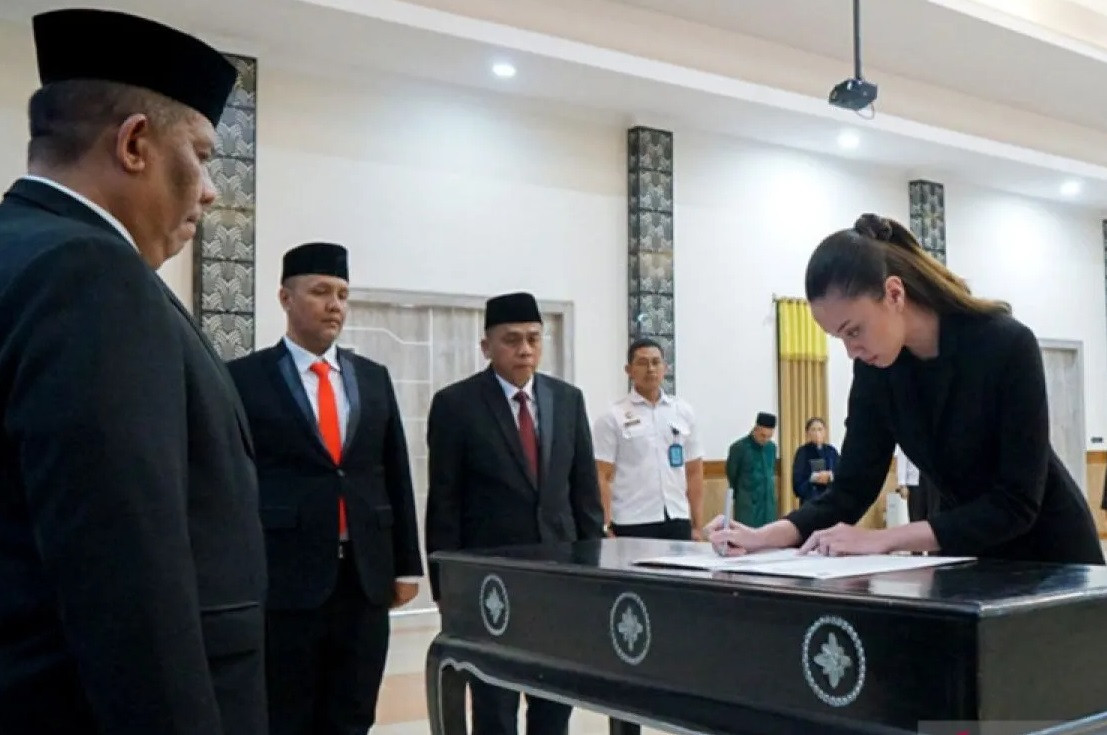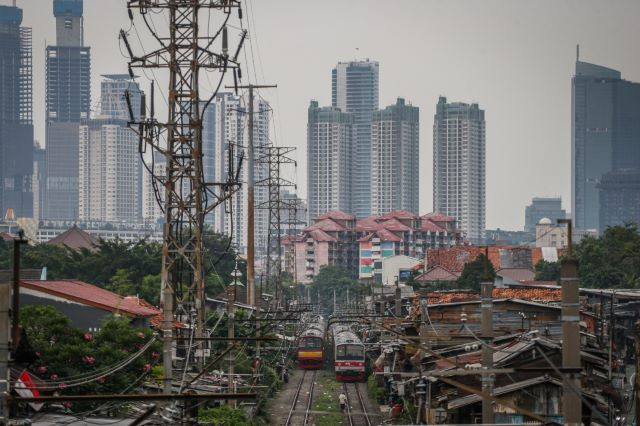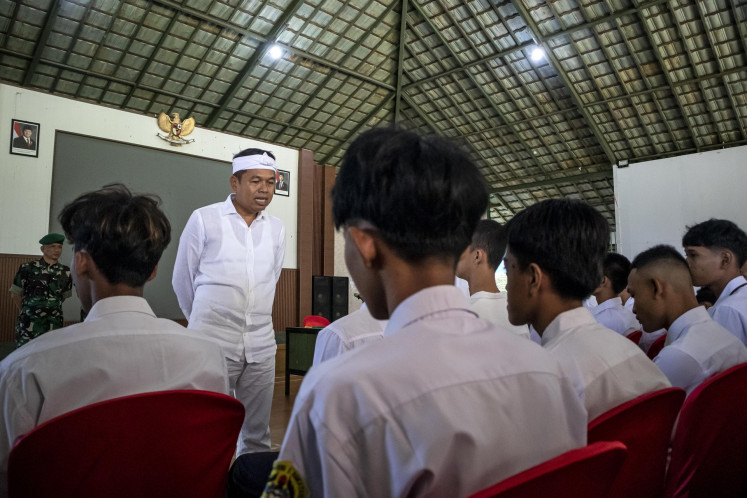Is Indonesia really ready to embrace dual citizenship?
The vast majority of children of mixed marriages have direct and powerful connections with Indonesia.
Change text size
Gift Premium Articles
to Anyone
 Legally Indonesian: Felicia Liana Adema (right), a child of a mixed marriage couple, signs the document of her Indonesian citizenship at the West Java office of the Law and Human Rights Ministry in Bandung, West Java, on March 8, 2023. (Antara/Law and Human Rights Ministry)
Legally Indonesian: Felicia Liana Adema (right), a child of a mixed marriage couple, signs the document of her Indonesian citizenship at the West Java office of the Law and Human Rights Ministry in Bandung, West Java, on March 8, 2023. (Antara/Law and Human Rights Ministry)
O
nce again, the Indonesian government has trotted out the prospect of changes to the country’s citizenship laws as an enticement to the diaspora community to return to Indonesia.
As an Indonesian living abroad, I heartily welcome such initiatives. The Indonesian diaspora includes many young adults who were forced to forego Indonesian citizenship because of the country’s single citizenship rule. As an Indonesian and the mother of such children, I too hope that one day they might regain their Indonesian citizenship.
But as a member of a mixed-marriage organization, PerCa Indonesia, I urge all parties to recognize the complexity and magnitude of the process entailed in offering dual citizenship. Such a paradigm shift would require new levels of commitment – and courage – from Indonesian policymakers.
Two decades ago, the mixed marriage community’s call for dual citizenship culminated in Law No. 12/2006, which redefined Indonesia’s concept of what it meant to be a citizen – at least for children until adulthood. The groundbreaking law allows minors to hold dual nationality – even though the Constitution recognizes only single citizenship – but then requires them as adults to actively choose Indonesian citizenship or automatically lose it. This temporary reprieve, called limited dual citizenship, was seen as an expedient and preferable option, especially in cases where a child born to an Indonesian mother could lose the right to be an Indonesian citizen and, therefore, residence in Indonesia.
Unfortunately, even now, more than 15 years after being enacted, Law No. 12/2006 and its limited dual citizenship concept still face complications. PerCa Indonesia’s members have encountered cases where, first, the authorities have had different interpretations or understandings of the law and, second, the resolution sometimes did not reflect the noble intent of the law.
PerCa Indonesia believes that the solution is to simplify the path to dual citizenship. This solution, which we call “Indonesian forever”, defines citizenship roughly as follows:
First, an emphasis on the principle of jus sanguinis (lineage by blood) rather than jus soli (place of birth), with equal rights before the law. So as long as the child is born to an Indonesian mother or father, the child will forever be an Indonesian citizen.


















